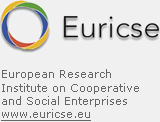There is no democracy without free and fair elections. Elections provide a crucial opportunity to assess the actual workings of a democracy. Canadian elections are the primary focus of the Canadian Election Study (CES). The main objective is to explain what makes people decide to vote (or not to vote), and, if they do, what makes them decide to support a given party or candidate, and why parties gain or lose ground from one election to another.
The primary mandate of the study is to provide a thorough account of the election, to underline the main reasons why people vote the way they do, to indicate what does and does not change during the campaign and from one election to another, and to highlight similarities and differences between voting and elections in Canada and in other democratic countries. The second mandate is to contribute to the development of scientific knowledge regarding the motivations of voters and the meanings of elections and election campaigns in democratic societies. The third mandate is to assemble a rich set of data about Canadians' attitudes and opinions on a wide variety of social, economic, and political issues, and to make that data publicly available to researchers in political science, sociology, economics, communications, and journalism.
Data
Data available from the CES archive, hosted by the Canadian Opinion Research Archive: http://www.queensu.ca/cora/ces.html
The team
Patrick Fournier
Patrick Fournier is an Associate Professor in the Department of Political Science at the Université de Montréal. He is principal investigator of the Canadian Election Study for the next two elections. He was a member of the CES team for the 2004, 2006 and 2008 elections. His research interests include political behaviour, political psychology, citizen competence, opinion change, and survey methodology.
Fred Cutler
Fred Cutler is an Associate Professor in the Department of Political Science at the University of British Columbia He does research in public opinion, elections, federalism, and political psychology. He has published in POQ, JOP, BJPolS, CJPS, Publius, Political Geography, Electoral Stuides, and has chapters in various edited volumes. A new research project involves lab experiments to understand the effects of different numbers of political parties on voters (electoraldemocracy.com). He has a SSHRCC-funded project on Polls and Elections, with J. Scott Matthews (Queen's), Mark Pickup (Oxford & SFU), and Paul Gustafson (UBC). His recent SSHRCC-funded research focussed on the effect of federalism on political behaviour and government accountability. Much of his work has investigated the influence of the local social and economic environment on how people think about politics.
Stuart Soroka
Stuart Soroka is Associate Professor and William Dawson Scholar in the Department of Political Science at McGill University. He is also Adjunct Professor and Director of theCanadian Opinion Research Archive at the School of Policy Studies at Queen's University, Kingston. Dr. Soroka's research focuses on the links between public preferences and public policy, and on the sources of public preferences for policy.
Dietlind Stolle
Dietlind Stolle is Associate Professor in Political Science at McGill University, Montréal, Canada. She conducts research and has published on voluntary associations, trust, institutional foundations of social capital, ethnic-racial diversity and its consequences on social cohesion, and various forms of political participation. She is also the co-principal investigator of the unique longitudinal Comparative Youth Survey (CYS) as well as associate director of the US Citizenship, Involvement and Democracy (CID) survey. Stolle has also co-edited a book on social capital and one on political consumerism. She was guest professor at the Wissenschaftszentrum Berlin and the NCCR at the University of Zürich.








